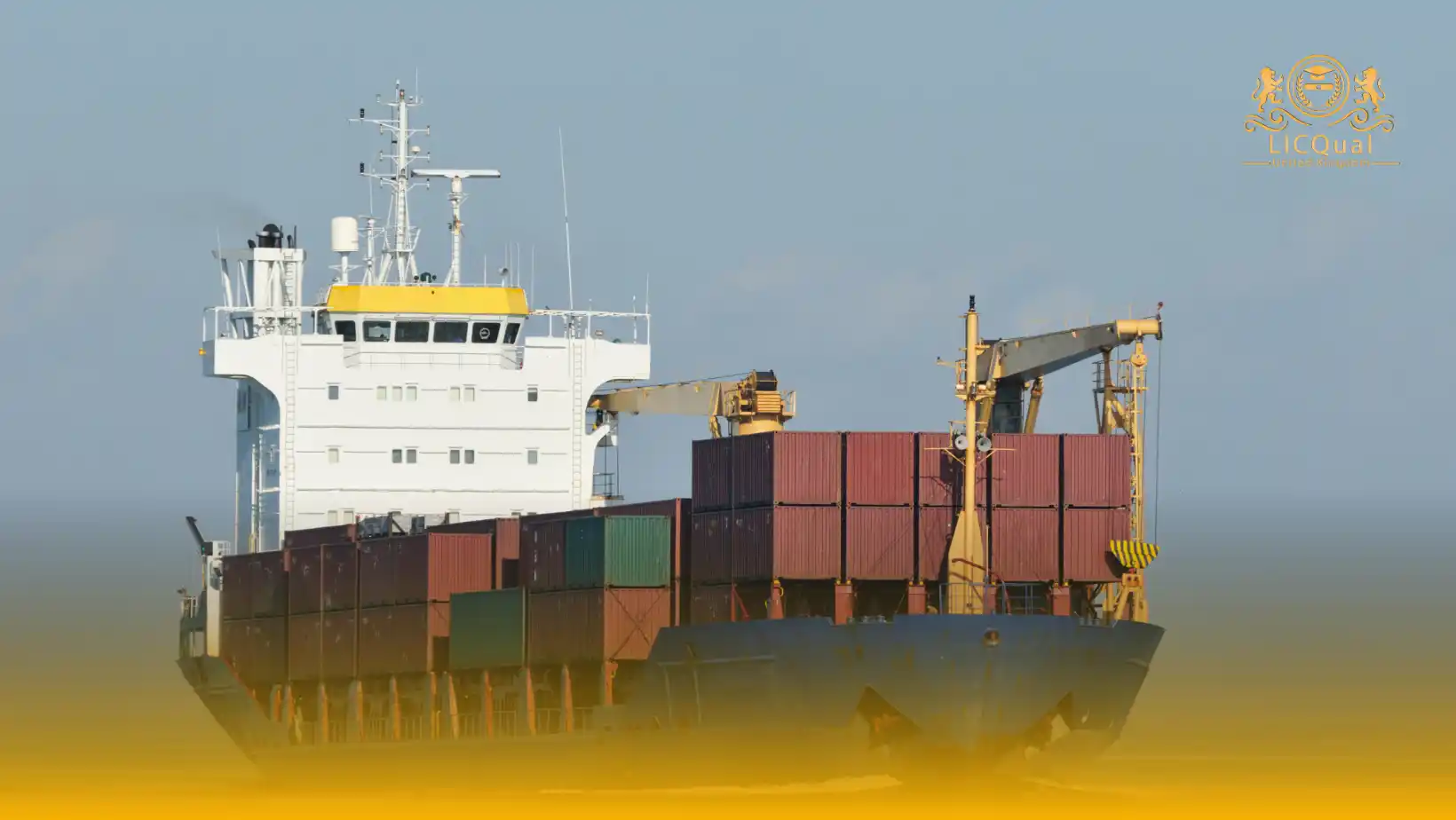The LICQual Level 3 Certificate in Offshore Containers (OSC) is a specialized qualification designed for professionals involved in the handling, inspection, and management of offshore containers used in oil, gas, marine, and renewable energy industries. This course delivers essential training on safety, structural integrity, and regulatory compliance, equipping learners with the knowledge and skills to ensure offshore containers are operated and maintained to the highest international standards.
Participants will explore the core principles of offshore container design, load-bearing capacity, and safe lifting practices. The course places a strong emphasis on international standards such as DNV 2.7-1, ISO 10855, and IMDG Code requirements. Learners will gain practical insights into container certification, lifting set inspection, and documentation procedures to ensure that all offshore containers are fit for use in high-risk marine environments.
This qualification is ideal for offshore logistics coordinators, inspectors, rigging crews, lifting supervisors, and safety officers working with containers in offshore operations. It’s also well-suited for individuals entering the offshore sector who need to understand the technical and safety requirements of container handling and transportation. By combining theory with real-world practices, the course empowers learners to manage risks and maintain operational integrity in demanding offshore conditions.
Holding the LICQual Level 3 Certificate in Offshore Containers enhances your professional credibility and career opportunities within offshore and maritime industries. Employers value this certification as a demonstration of your competence in adhering to safety standards, minimizing risk, and contributing to the overall efficiency of offshore logistics and supply chain operations. It’s a powerful credential for anyone seeking to progress in offshore handling roles.
Delivered through flexible learning options, including online study, blended learning, and practical training (where applicable), this course is designed to fit around demanding offshore work schedules. Guided by experienced industry professionals, learners receive in-depth support to master both the regulatory and technical aspects of offshore container management.
Course Overview
Qualification Title
LICQual Level 3 Certificate in Offshore Containers (OSC)
Total Units
6
Total Credits
24
GLH
120
Qualification #
LICQ2200535
Qualification Specification
To enroll in the LICQual Level 3 Certificate in Offshore Containers (OSC) applicants must meet the following criteria:
|
Qualification# |
Unit Title |
Credits |
GLH |
|---|---|---|---|
|
LICQ2200535-1 |
Introduction to Offshore Containers and Regulatory Standards |
4 |
20 |
|
LICQ2200535-2 |
Design, Construction, and Material Requirements |
4 |
20 |
|
LICQ2200535-3 |
Inspection, Testing, and Certification Procedures |
4 |
20 |
|
LICQ2200535-4 |
Lifting Operations and Load Handling Safety |
4 |
20 |
|
LICQ2200535-5 |
Documentation, Labeling, and Record-Keeping |
4 |
20 |
|
LICQ2200535-6 |
Risk Management, Environmental Considerations, and Emergency Response |
4 |
20 |
By the end of this course, applicants will be able to:
1. Introduction to Offshore Containers and Regulatory Standards
- Identify the types and purposes of offshore containers used in marine and oil & gas operations.
- Explain the key international regulations governing offshore container use, including DNV 2.7-1, ISO 10855, and the IMDG Code.
- Demonstrate an understanding of the importance of regulatory compliance in offshore environments.
2. Design, Construction, and Material Requirements
- Describe the structural and material requirements for offshore container construction.
- Recognize common construction methods, including welding and corrosion protection techniques.
- Apply knowledge of international design codes to assess container integrity.
3. Inspection, Testing, and Certification Procedures
- Perform routine visual inspections and identify signs of wear, damage, or structural compromise.
- Understand and apply non-destructive testing (NDT) and load testing methods for offshore containers.
- Explain certification processes and recognize valid inspection documentation in line with DNV 2.7-3 and LOLER.
4. Lifting Operations and Load Handling Safety
- Identify safe lifting practices for offshore containers, including correct rigging and sling selection.
- Calculate center of gravity and ensure proper load distribution before lifting.
- Apply safety precautions during crane operations and manual handling in offshore environments.
5. Documentation, Labeling, and Record-Keeping
- Maintain accurate records of inspections, testing, and maintenance for offshore containers.
- Interpret and apply container labeling requirements according to the IMDG Code and international shipping regulations.
- Demonstrate proper use of documentation for traceability and regulatory compliance.
6. Risk Management, Environmental Considerations, and Emergency Response
- Conduct risk assessments and identify hazards associated with offshore container operations.
- Apply measures to reduce environmental impact and ensure pollution control during container handling.
- Respond effectively to emergencies, including damage control and containment of hazardous materials, in compliance with ISO 45001 and MARPOL guidelines.
The LICQual Level 3 Certificate in Offshore Containers (OSC) is ideal for individuals involved in the handling, inspection, and certification of offshore containers. This course is suited for:
- Offshore Logistics Coordinators – responsible for planning and managing container movements in offshore environments.
- Rigging and Lifting Personnel – including riggers, crane operators, and deck crew who handle containers during offshore lifting operations.
- Container Inspectors and Surveyors – involved in visual checks, load testing, and ensuring compliance with DNV 2.7-1 and other international standards.
- Safety Officers and HSE Professionals – who oversee offshore lifting operations and ensure regulatory compliance and risk control.
- Marine Engineers and Maintenance Technicians – tasked with maintaining the structural integrity of offshore containers and associated equipment.
- Shipping and Supply Chain Supervisors – responsible for coordinating the safe transport of containers from shore to platform.
- New Entrants to the Offshore Industry – who want to build a strong foundation in offshore container safety, inspection, and regulations.
- Employers and Contractors – seeking to train their workforce to meet international compliance, reduce risk, and improve offshore operational standards.
This course is essential for anyone aiming to operate safely, stay compliant, and gain a competitive edge in the global offshore logistics and energy sectors.
Assessment and Verification
All units within this qualification are subject to internal assessment by the approved centre and external verification by LICQual. The qualification follows a criterion-referenced assessment approach, ensuring that learners meet all specified learning outcomes.
To achieve a ‘Pass’ in any unit, learners must provide valid, sufficient, and authentic evidence demonstrating their attainment of all learning outcomes and compliance with the prescribed assessment criteria. The Assessor is responsible for evaluating the evidence and determining whether the learner has successfully met the required standards.
Assessors must maintain a clear and comprehensive audit trail, documenting the basis for their assessment decisions to ensure transparency, consistency, and compliance with quality assurance requirements.







